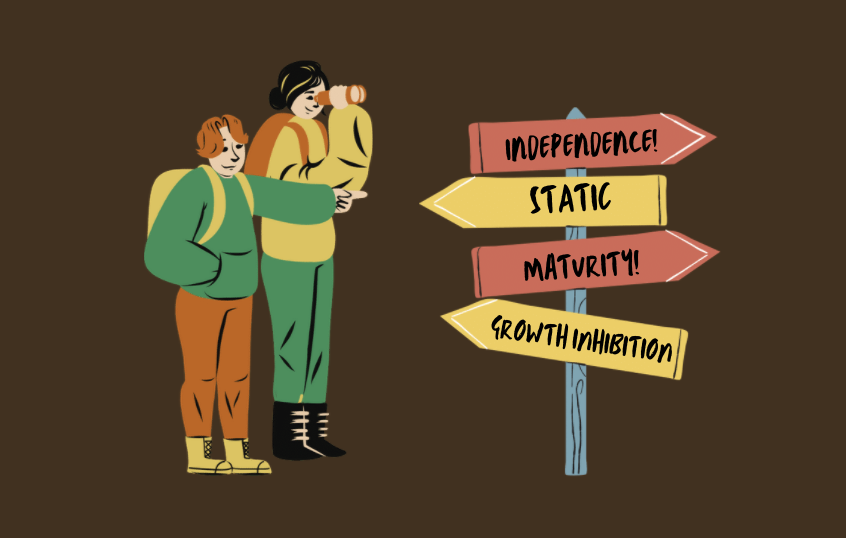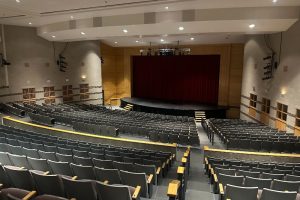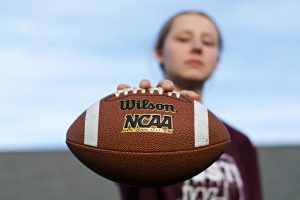Overnight trips foster growth essential to high school experience
Made by Anushka Patil through Canva
Overnight trips teach students valuable lessons as they prepare for an independent future.
December 9, 2021
It’s 3 a.m., and I am standing in a nearly empty airport, coffee and student ID in hand. The nerves of getting on the next plane to Chicago without my parents are setting in, but also the excitement of it all. And, even though the trip hasn’t started yet, I can predict how beneficial it will be for me from Gate 36 of the Manchester-Boston Regional Airport.
Traveling to Chicago in my freshman year with the Ghostwriter team to attend a national journalism conference, I grasped the importance of overnight field trips to a student’s high school experience. Summed up, I not only learned how to present local news but also how to take care of myself without the protection of my parents and town community.
Moreover, I am an advocate for these trips, understanding first-hand the impacts they can have on students. From its start in March 2020, the pandemic has canceled virtually every overnight excursion, the most recent ones being the senior class trip to Disney World and the eighth grade trip to Washington DC, both of which were set to take place this coming May. And, although I completely agree with the need to cancel these trips with the latest public health and COVID information in mind, I think that we cannot allow certain changes made to adjust to the pandemic, such as those made for high school trips, to affect us in the future when COVID isn’t as great of a threat as it is today.
In recent years, the idea of liability has come up in discussions regarding trips like the one to Disney World, with multiple WPS Administration and Faculty members reevaluating the decision to keep supporting these trips.
“[For the future], it is beyond the COVID angle. The superintendent has to look at the bigger picture… We are one of the only schools in Massachusetts that still does Disney trips,” Westford Academy Principal James Antonelli said in a recent press conference with the Ghostwriter.
Further, according to Antonelli, the administration believes liability comes into play with student behavior, student safety, and student social-emotional health on these trips, as it’s hard to control a large group of young adults for days at a time while away from home. To avoid situations in which WPS is held legally responsible, the administration has been considering phasing out certain class excursions and field trips, which, candidly, I think is a big mistake.
It’s important that our school district provides students with all opportunities to grow as people, even if these opportunities aren’t strictly academic. Some students may not have the chance to go on academic overnight trips, as they may not be part of clubs or classes that hold them. Additionally, some students may choose to save up financially for the big class trip. Whatever the reason, all pre-pandemic trips should still be offered post-pandemic.
For these bigger class trips, the protocol can be reworked, with past incidents in mind, to improve the experience. More chaperones. More supervision. More rules enforced. More mental-health mindfulness. More safety precautions. It truly is a matter of adjustment and not a matter of feasibility.
As for educational excursions, such as foreign exchange trips and club conferences (like those for the Ghostwriter, DECA, and HOSA), students gain knowledge and life lessons that they cannot learn in the classroom setting.
According to a study conducted by the National Education Association Member Benefits, 89% of high school graduates found that educational trips sparked intellectual curiosity amongst them and had a long-lasting, positive impact on their careers.
Academic overnight trips, specifically, give students the opportunity to spend days focused on concentrated material through real-world experience. Unlike day trips, overnight ones allow students to separate themselves from Westford and mature as young intellectuals ready to independently delve into coursework that excites them. The adrenaline and unfamiliarity of these adventures push students’ boundaries, forcing students to adapt and grow.
Experiential learning, an expanded worldview, interactions with people from different parts of the continent, and even the world, all play a role in preparing students for future careers and to be well-rounded global citizens. From debating public policy with a student from Texas to sharing research on diabetes with fellow curious biologists to improving their German in a host’s house in Berlin to learning how to budget their money to figure out how to find their school group after spending two hours in an opinions-writing workshop, these experiences matter. When we can give students these opportunities, why take them away?
WPS liability can be a call for concern, but conversations can be had between students, parents, and administration to ensure open communication, trust, and respect are present during these trips. Financial aspects can be taken care of through local fundraising, putting the responsibility on the school organizations interested in the trips. Fear shouldn’t stop us from providing opportunities that can have a special impact on thousands of students.
At the end of the day, WPS is setting us up for our futures. It is important that WPS offers its students every opportunity for success. And, with the proper precautions and rules established, school trips can be offered to students, fostering lifelong memories and a positive high school experience.








